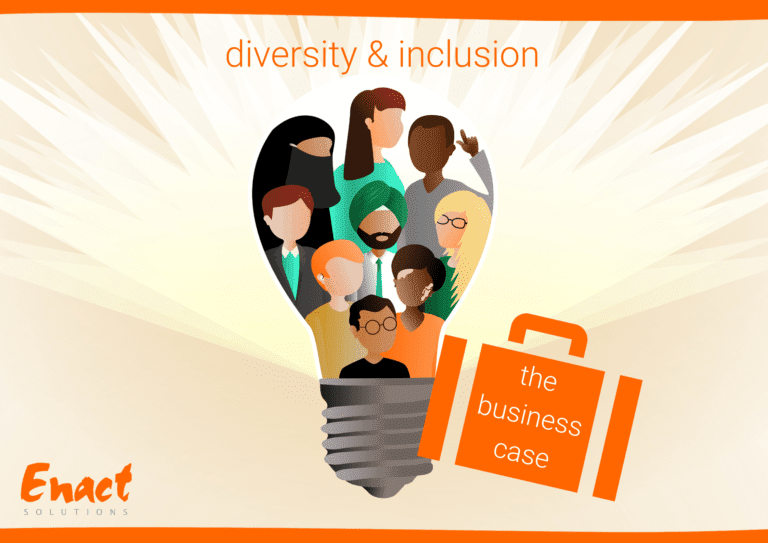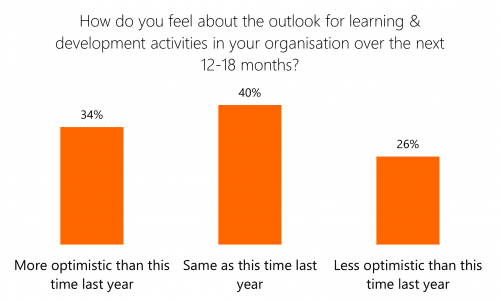
In February 2019, we’re excited to be in London for a joint event on the topic of Resilience with our colleague, Lydia Guthrie, Co-Director of Change Point Ltd. Lydia will be talking about her work in this field, and we’ll be showcasing content from the new experiential, drama-based training programmes we’ve been developing together.
By way of little a ‘taster’ for the event, we caught up with Lydia for a quick Q&A. Hope you enjoy it.
Hi Lydia, how are you looking forward to our Resilience event in February?
Hi Peter. I’m really looking forward to working with you and the team. I’ve admired Enact’s work for a long time, and it’s great to be joining forces with you for this event.
It’s an important topic. What does Resilience mean to you? And where does ‘bouncebackability’ fit in?
Resilience means a lot to me, and I’ve spent a lot of time researching it, writing about it, and helping teams and organisations to think about it. I first became interested in resilience when I worked in a very challenging environment in the criminal justice system. I was a manager, responsible for a team of people who did very difficult jobs, working with people who had committed serious offences. Each individual staff member showed their stress in different ways. Some talked a lot about their concerns, and approached me with lots of minor problems, whereas others told me they were “fine” but clearly weren’t! I learned that, for my team to perform well and to stay healthy, I needed to tune in to people and support them in ways which suited them.
I then did lots of reading about theories of resilience, including some studies of resilience in different work environments, and found that it’s rarely the actual work which causes long term difficulties for staff – it’s more to do with issues such as how the team functions, and how empowered people feel. I wrote a chapter about resilience in an academic book about the criminal justice system, and I am passionate about working with teams to build a resilient culture.
Bouncebackability is usually referred to as a person’s ability to recover from challenging situations. I like to think of it in a wider way – it’s how organisations support people to prepare for challenges, cope with them, and learn from them, in order to establish a positive culture around resilience.
Are there pitfalls companies need to avoid when seeking to increase Resilience?
Resilience can sometimes be thought of as a quality of an individual person – “Bob is much more resilient than Bill – he never complains and can cope with anything, but Bill’s a bit flaky”. This way of thinking can be appealing in the short run, but it’s much more complex than that. Individual factors do play a part, and we can all learn skills which are linked with increased resilience. And, an individual’s resilience will fluctuate over the course of our life – we all have times when we may struggle a bit with work due to other events in our lives, like bereavements or separations. The main lesson from research is that it’s important not to overlook the importance of organisational culture. Resilience is linked with organisations which seek to empower the workforce, and give them some control over aspects of the working environment. It’s not at all accurate to think of resilience as being just a quality which some individuals have and others don’t.
Resilience is just one of the issues your company, Change Point Ltd, works on. Tell us a bit more about what you do?
I spent 11 years working in the Probation Service, as a front line worker and a manager. Since 2009, I have been Co-Director of Change Point Ltd, with my colleague, Clark Baim. We design and deliver training which focuses on relationships, focusing on themes such as supervision, resilience, attachment theory, motivational interviewing and working with people’s strengths. We work mainly in social care, criminal justice, and health sectors. We also write books, and are passionate about supporting people to continue to develop their skills at work. I also do a lot of supervision of people who work in health and social care environments, and I’m training as a psychotherapist.
We’ve had a great time working with you creating new content. How do you like collaborating with others? We’re not fishing for compliments, honest.
I love collaborating! I’d much rather be working as part of a team than on my own. I love developing ideas with other people, and polishing them until they shine. And it means that I don’t get so lonely! ? The Enact team are great to work with, as you bring such experience and creativity to the work.
What do you make of the drama-based, experiential angle we bring to things?
Drama is a great way of helping people to learn. It really helps people to relate theory to their workplace, and to think and feel about how things might work in practice. And it’s fun!
So, what’s next? Obviously, there’s our event in February, but what else? What are you hoping for in 2019?
In 2019, I’m going to be focusing on finishing my systemic psychotherapy training. I’m also going to be delivering more training on attachment theory, and doing more work to support teachers in primary and secondary schools to build their resilience.



